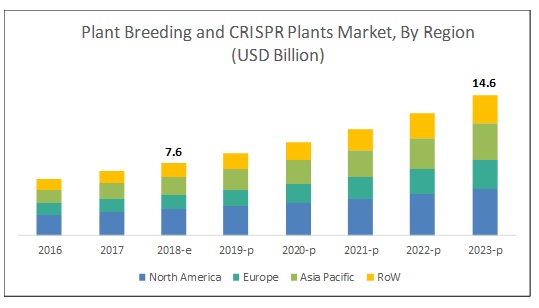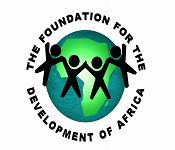Plant Science 2022
 Conference Series LLC LTD invites all the participants from all over the 2nd World Plant and Soil Science Congress during October 14-15, 2022 in Paris, France which includes prompt keynote presentations, Oral talks, Poster presentations Young Research Forum and Exhibitions. The theme of the conference is around” Emerging Challenges of Plant Science for Crop Improvement”.
Conference Series LLC LTD invites all the participants from all over the 2nd World Plant and Soil Science Congress during October 14-15, 2022 in Paris, France which includes prompt keynote presentations, Oral talks, Poster presentations Young Research Forum and Exhibitions. The theme of the conference is around” Emerging Challenges of Plant Science for Crop Improvement”.
Plant Science 2022 is the premier event that brings together a unique and international mix of experts, researchers and decision makers both from academia and industry across the globe to exchange their knowledge, expertise and research innovations to build a world class plant Science conference.
Why to attend?
With members from around the world focused on learning about Plant Science and its advances; this is your best opportunity to reach the largest assemblage of participants from the Plant Science and Agriculture community. Conduct presentations, distribute information, meet with current and potential scientists, make a splash with new advancements and developments, and receive name recognition at this 2-day event. World-renowned speakers, the most recent techniques, developments, and the newest updates in Plant Science are hallmarks of this conference.
Target Audience:
-
Plant Science / Agricultural Students, Scientists
-
Plant Science Researchers
-
Plant Science Faculty
-
Agricultural Universities
-
Horticulture and Landscaping
-
Plant and Agriculture Associations and Societies
-
Business Entrepreneurs
-
Training Institutes
-
Seed Science and Technology
-
Soil science and soil-plant nutrition
Scientific Sessions
Session 01: Plant Tissue Culture and Plant Biotechnology
Plant tissue culture is the development of plant cells outside an blameless plant. It depends upon maintaining plant cells in antiseptic conditions on an affordable supplement medium. The way of life can be maintained as a mass of undifferentiated cells for an all-inclusive time frame, or recovered into whole plants. Plant tissue culture is the approach of developing and keeping up plant cells, tissues or organs particularly on simulated medium in appropriate holders under controlled ecological conditions. Any piece of a plant is taken out which is known as explants and developed in a test tube under sterile conditions. The distinctive procedures utilized in plant tissue culture: Plant Cell Growth , Plant Biotechnology event and Crops and Plant Breeding. Plant tissue culture is generally used to deliver clones of a plant in a procedure known as micro-propagation. Plant Biotechnology is the innovation which is utilized for getting new item with high return and at faster ways.
Keywords: Plant Science Conference | Plant Science Congress | Plant Biotechnology Congress | Plant Science Workshop | Plant Biotechnology Meetings | Plant Science Events | Plant Science Seminar | Plant Tissue Culture
Session 02: Soil fertility & Crop Improvement
Soil fertility refers to the Earth's limit for supplying essential plant supplements and soil water in adequate wholes and degrees for plant advancement and age without unsafe substances that may block plant improvement.
Crop improvement refers to the genetic alteration of plants to satisfy human needs. In prehistory, human forebears in various parts of the world brought into cultivation a few hundred species from the hundreds of thousands available. Through a long history of trial and error, a relatively few plant species have become the mainstay of agriculture and thus the world's food supply.
Keywords: Plant Science Conference | Plant Science Congress | Soil Fertility Congress | Plant Science Workshop | Crop Improvement Meetings | Plant Science Events | Plant Science Seminar | Plant Breeding Conference
Session 03: Plant Ecology and Diversity
It is assessed that there are somewhere in the range of 300,000 and 500,000 types of higher plants (i.e. blossoming and cone bearing plants), of which around 250,000 have been recognized or portrayed.
Various varieties inside any population are indispensable for that populace's survival. In the event that people were the entire equivalent, a solitary strain of an especially dreadful chilly could wipe every one of us out.
-
Climate Change
-
Migration
-
Phenotypic Plasticity
​Keywords: Plant Science Conference | Plant Science Congress | Plant Ecology Congress | Plant Science Workshop | Plant Diversity Meetings | Plant Science Events | Plant Science Seminar | Plant Breeding Conference
Session 04: Aromatic and Medicinal Plant Sciences
The worldwide natural and plant-determined medication showcase was esteemed at $21.4 billion out of 2011 and should reach $22.1 billion of every 2012. Add up to advertise esteem is required to reach $28.7 billion out of 2020 in the wake of expanding at a five-year compound yearly development rate (CAGR) of 7.9%.
-
Ornamental plants and bioactive compounds
-
Olive Bioactive: Applications and Prospects
-
Phytochemistry Experts Meeting
Keywords: Plant Science Conference | Plant Science Congress | Plant Biotechnology Congress | Plant Science Workshop | Medicinal Plant Science Meetings | Plant Science Events | Plant Science Seminar | Aromatic Plant Science Conference
Session 05: Molecular Plant Breeding
Plant Breeding is the methods which are utilized for sub-atomic science to choose, or on account of hereditary change, to embed attractive characteristics into plants. Sub-atomic rearing, for example, marker helped choice and multiplied haploids are exceptionally precious systems. There is plausibility that through plant reproducing can similarly use by natural development.
Keywords: Plant Science Conference | Plant Science Congress | Plant Biotechnology Congress | Plant Science Workshop | Plant Biotechnology Meetings | Plant Science Events | Plant Science Seminar | Plant Breeding Conference
Session 06: Plant Nutrition and Soil Sciences
The plants have need of water and minerals originate from the dirt, while carbon dioxide originates from the air. Macronutrients and Micronutrients are the primary components required by plants. Soil quality is a noteworthy determinant of plant circulation and development. Nitrogen is often the required mineral that has the best impact on plant development. Plants require nitrogen as a segment of proteins, nucleic acids, chlorophyll. Natural nitrogen obsession (BNF) happens when air nitrogen is changed more than to smelling salts by a catalyst called nitrogenise. Soil science is the study of soil as a characteristic asset on the surface of the Earth including soil development, order and mapping and soil disintegration.
Sub Tracks
-
Soil Minerals
-
Plant Nutrition
-
Soil environment
-
Soil disintegration
-
Soil transformation
Keywords: Plant Science Conference | Plant Science Congress | Plant Nutrition Congress | Plant Science Workshop | Soil Science Meetings | Plant Science Events | Plant Science Seminar | Soil Science Conference
Session 07: Arabidopsis
Arabidopsis is a variety in the family Brassicaceae. They are little blooming plants identified with cabbage and mustard. This likeness is of unimaginable enthusiasm since it contains thali cress (Arabidopsis thaliana), one in every of the model living beings utilised for examining plant science and also the primary plant to have its whole genome sequenced. Changes in thali cress are effortlessly watched, making it an exceptionally helpful model.
Sub Tracks
• Genetic Engineering of Arabidopsis
• Cytogenetic of Arabidopsis
Keywords: Plant Science Conference | Plant Science Congress | Plant Nutrition Congress | Plant Science Workshop | Soil Science Meetings | Plant Science Events | Plant Science Seminar | Soil Science Conference | Arabidopsis
Session 08: Plants and Climate Change- Overcoming Measures
Climate change is flipping around the lives of ranchers, and is importantly changing the manner in which farming is honed. Certainly distinctive climate styles, shorter developing seasons, surprising climate, and many different changes present overwhelming issues for smallholder ranchers around the globe particularly in the tropics.
Keywords: Plant Science Conference | Plant Science Congress | Plant Nutrition Congress | Plant Science Workshop | Soil Science Meetings | Plant Science Events | Plant Science Seminar | Soil Science Conference | Arabidopsis | Climate Change Conference
Session 09: Plant Pathology and Plant Microbe Biology
Plant Pathology is characterized as the investigation of the living beings and natural conditions that reason sickness in plants, the components by which this happens, the associations between these causal operators and the plant (consequences for plant growth, yield and quality), and the strategies for overseeing or controlling plant infection. It likewise interfaces learning from alternative logical fields, for example, mycology, microbiology, virology, natural chemistry, bio-informatics, and so forth. Plant Pathologists are researchers worried about the understanding of the dynamic procedures associated with the plant wellbeing. Their work is more research situated.
Keywords: Plant Science Conference | Plant Science Congress | Plant Biology Congress | Plant Science Workshop | Soil Science Meetings | Plant Science Events | Plant Science Seminar | Soil Science Conference | Plant Pathology Conference | Climate Change Conference
Session 10: Plant Signalling and Chemical Signalling
Plant signalling is the ability of plants to detect and react to the earth to change their morphology, physiology and phenotype in like manner. Different subdivisions, as an example, plant physiology; nature and atomic science are wont to examine the capacities of the plant.
Keywords: Plant Science Conference | Plant Science Congress | Plant Biology Congress | Plant Science Workshop | Soil Science Meetings | Plant Science Events | Plant Science Seminar | Soil Science Conference | Plant Pathology Conference | Plant Signalling Conference
Session 11: Plant Science Research and Natural Products
Botanically-determined ingredients were among the latest intensifying agents. Antiquated occasions utilized in together are Common colorants, plant juices for mitigating and security from creepy crawly bothers, and fragrant oils for bestowing aroma. Mostly, plants were the best way to deliver items for cleaning, saturating, concealing flaws and notwithstanding treating minor skin situation.
Keywords: Plant Science Conference | Plant Science Congress | Plant Biology Congress | Plant Science Workshop | Soil Science Meetings | Plant Science Events | Plant Science Seminar | Soil Science Conference | Natural Products Conference | Plant Science Research
Session 12: Crop Research and Seed Science Technology
Crop research is characterized as action coordinated to make the generation, promoting and utilization of business Crops more proficient and gainful. As a result, edit research may include any or the majority of the accompanying like Plant Breeding, plant physiology and Biochemistry, trim assurance, social administration, stockpiling techniques research preparing items thinks about. The meaning of plant rearing is the adjustment of yield plants to Canadian conditions is treated in a different article. Understood victories include Marquis Wheat, Triticale, Canola and Lentils. Yields incorporate grain and seed Crops, Forages, claim to fame crops, Vegetables, Fruits and Ornamentals.
Keywords: Plant Science Conference | Plant Science Congress | Plant Biology Congress | Plant Science Workshop | Soil Science Meetings | Plant Science Events | Plant Science Seminar | Soil Science Conference | Seed Science Technology Conference | Plant Science Research
Market Analysis
Conference series LLC LTD invites the entire participant from all over the world for the 2nd World Plant and Soil Science Congress in Tokyo, Japan during November 15-16, 2021. The event will mainly focus on the wide range of topics in Plant Science research and provide deep knowledge on how plants sense, process, integrate and store information related to environmental challenges. It is a Global platform that combines different domains, will stimulate the exchange of ideas and enable participants to grasp the latest developments and ideas in different areas of plant science. Plant Science 2021 includes prompt keynote presentations, Oral talks, Poster presentations Young Research Forum and Exhibitions.
Research in the field of plant sciences contribute directly to world’s economy and development. The results of this research are associated to many regions like agriculture, forestry, horticulture, and urban planning. The results of these researches are usually part of larger contributions, which are beneficial and important for human being. Plants were always important subjects from the earliest study of life processes, and they were central to scientific study in the nineteenth and early twentieth centuries. Research on plants enhances our rational life and boosts our knowledge about other life processes. The results of research on plant science also tell us how to approach problems in agriculture, health, and the environment.
Why to attend???
With members from around the world focused on learning about Plant Genomics and its advances; this is your best opportunity to reach the largest assembly of participants from the Plant Science and Genomics community. This conference seek to bring all such scientist, Noble Laureate, researcher, research scholar, students and people together who are involved in Plant Science and Genomics field and provide them to discuss about their unique innovation, sharing ideas and interaction with each other. World-renowned speakers, the most recent development and advancement in the field of plant genomics are the limelight of the conference.
Agriculture was expanded during the 1960s and 1970s as it had access to new land and unemployed labour. Between 1962 and 1983, the agricultural sector grew by 6.1% a year on average and in 1980 it employed over 78% of the working population. Yet, the state perceived developments in the agricultural sector as necessary for industrialization and exports were taxed in order to keep domestic prices low and raise revenue for state investment in other areas of the economy.
Plant Breeding Scope:
The plant breeding and CRISPR plants market is estimated to account for USD 7.6 billion in 2018 and is projected to reach USD 14.6 billion by 2023, at a CAGR of 13.95% during the forecast period. Strong funding by the private and public sectors toward agrigenomic research such as the development of high-throughput sequencing systems and application of MAS and genomic selection in field and vegetable crops are projected to drive the growth of the market over the next five years. Unmanned aerial vehicles (UAVs), robots, artificial intelligence (AI), and machine learning are revolutionizing this practice. Hence, plant breeders are continuously investing in these technologies to explore the genetic basis of trait variation in crops with higher accuracy and within the limited timeline.
Increasing regulations on the use of chemical pesticides and rising instances of pest attacks during the early germination phase have increased the need for pesticide-tolerant seeds. Herbicide tolerance has been one of the major traits targeted by plant genetic companies for transgenic and non-transgenic crops. Non-transgenic Clearfield herbicide tolerance technology, developed by BASF and Syngenta, is recognized as one of the ground breaking innovations in hybrid breeding technology, and more companies have exhibited their interest to enter this industry, which is projected to contribute to the growth in the next five years.

There has been an ever-increasing demand for commercial seeds in the Asian market, in line with the growing economic growth conditions. Also, seed manufacturers such as Bayer, Monsanto, and Syngenta have been showing increasing interest in tapping this potential market, wherein the companies have been expanding their R&D centers across the Asia Pacific. Public investments have been declining, while private investments in plant research have been growing exorbitantly. Moreover, the growth of the biotechnology industry observed in China, Japan, and India translates to the high-growth potential of the plant breeding market during the forecast period.
Major Plant science Associations around the Globe:
Meet your target market
The researchers from around the globe are focusing on learning the overview and techniques of plant genomics. So here is the opportunity to reach the largest group of participant from around the world for grasping the knowledge of different field on a single platform. The conference will conduct Keynote presentations, Oral talks (Speaker forum and Young research forum), Poster presentations, Workshops and Exhibitions and receive a participation certificate at the 2 days event.
Past conference Report
Conference series llc LTD hosted World Plant and Soil Science Congress on October 14-15, 2020 Rome, Italy based on the theme “Safeguarding the International Crop Population and Environmental Concerns”. Active participation and generous response was received from the Organizing Committee Members, scientists, researchers, as well as experts from Non-government organizations, and students from diverse groups who made this conference as one of the most successful and productive events in 2019 from Conference series.
Due to COVID-19 pandemic and travel bans, conference was hosted online with young academic, industrial experts and young scientists. We received active participation from scientists, young and brilliant researchers, business delegates and talented student communities representing more than 35 countries, who have driven this event into the path of success.
The conference was initiated with Dr. Patrizia Cesaro, working at Università del Piemonte Orientale, Italy for the conference and sessions vitually:
Using of beneficial soil microrganisms to improve the seed yield and quality of Phaseolus vulgaris in a reduced fertilization condition: Dr. Patrizia Cesaro, Università del Piemonte Orientale, Italy.
Determining some ecophysiological traits of Protea ‘Pink Ice’ for the quantification of productive parameters: Dr. Enrique Misle, Universidad Católica del Maule, Chile.
The role of chloroplast precursor phosphorylating SYT kinases in protein import and acclimation in Arabidopsis thaliana: Dr. Ahmed Eisa, Ludwig Maximilian University of Munich, Germany.
Overlapping of agricultural and mining activities in two regions of central Chile: Dr. Estrella Garrido, Catholic University of Maule, Chile
Genome-wide identification and characterization of superoxide dismutase (SOD) gene family in B. juncea and B. rapa and their response in abiotic-stresses: Dr. Deepika Verma, Panjab University, India.
Effect of tillage systems and fertilizer treatments on yield of maize hybrids: Dr. Karamchand Bramdeo, University of Debrecen, Hungary.
Cold stress in apple: the antioxidant defense mechanisms for the prediction of sunscald disorder during postharvest storage: Dr. Besma Kahlaoui, University of Talca, Chile.
New techniques for evaluation of water stress and drought effects in crop and rangeland plants: Dr. Muhtor Nasyrov, Samarkand state university, Uzbekistan
Role of cyanoprokaryota in the rhizospheres of gypsophytes: Dr. Antonia Dolores Asencio Martinez, University of Murcia, Spain
We are also obliged to various delegate experts, company representatives and other eminent personalities who supported the conference by facilitating active discussion forums. We sincerely thank the Organizing Committee Members for their gracious presence, support, and assistance towards the success of Plant Biology 2020.
With the unique feedback from the conference, Conference Series LLC LTD would like to announce the commencement of 2nd World Plant and Soil Science Congress, during November 15-16, 2021 in Tokyo, Japan. The theme of this conference is “Emerging Challenges of Plant Science for Crop Improvement”.
For More details visit: https://plantscience-biology.agriconferences.com/

















